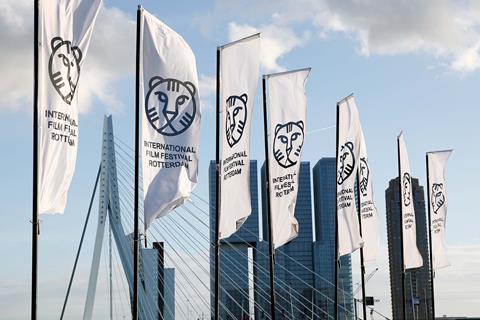
The International Film Festival Rotterdam (IFFR) is to restructure ahead of its next edition, reducing its core team by 15%.
IFFR has been disrupted by Covid, with its last fully in-person edition taking place in 2020. The festival is planning an in-person return for its 52nd edition next year which, circumstances permitting, will take place January 25-February 5, 2023.
IFFR plans to realign its remaining staff members under five divisions: content, communication and audience reach, funding and business growth, business affairs, and operations.
The restructure will be overseen by the IFFR board of directors. The new team line-up will be announced during the upcoming Cannes Film Festival, where IFFR will introduce the new organisational structure in full.
IFFR said that, under the leadership of festival director Vanja Kaludjercic and managing director Marjan van der Haar, the organisation is entering a new phase in its half century-long history.
Kaludjercic said: “We have a deep respect for our team which has been able in these past two challenging years to engage the audience and support our filmmakers in innovative new ways – and we are proud to have managed to continue learning, sharing knowledge and collaborating with partners in a rapidly changing environment. Our goal is to create a leading cultural platform accessible to all that champions compelling cinema and audiovisual art.”
Van der Haar said: “Like many organisations, the reduction in business has impacted us financially, and changes in both audience behaviour and the industry landscape have meant that we emerge into a different world as we begin planning for the 2023 edition and beyond – one which demands more than ever before a focussed vision, and a team driven to deliver it.”
Van der Haar added: “The creation of a new staffing set-up is anchored to our updated programming structure and engineered to enable audience growth, increased impact, and revenue stream diversity – allowing us to become both more sustainable and dynamic. This is vital in order to ensure the future of IFFR.”















![[L-R]: Amanda Villavieja, Laia Casanovas, Yasmina Praderas](https://d1nslcd7m2225b.cloudfront.net/Pictures/274x183/6/4/1/1471641_pxl_20251224_103354743_618426_crop.jpg)









No comments yet